
Politics & Society
Knowing what moves the world – big questions, strong opinions and uncomfortable truths.
Portrait: Vanessa Springora
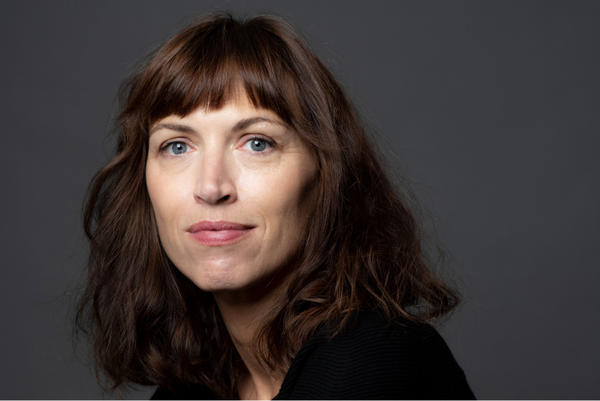
© Opale_afp
The prey strikes back
He was the object of 13-year-old Vanessa Springora’s love, but today she is settling accounts with Gabriel Matzneff, the prominent writer, who promoted the legalisation of sex with children and teenagers.
Back in the 1980s, he wrote about Vanessa Springora, his "Muse V." Now she is speaking out against him, and her book has made waves in France, sparking debates, and changing views: her memories of how she met 50-year-old Gabriel Matzneff when she was only 13 years old. The famous writer made her feel like someone special. He was considered an intellectual, one who wrote openly about sex with minors, and wanted to decriminalise it.
He tried to popularise the idea in cultural broadcasts, or in 1977 with an open letter in "Le Monde", which was signed by Simone de Beauvoir and Jean-Paul Sartre, among others. Many supported his fight against the bourgeoisie, talk show participants, and police officers, who merely countered Matzneff's activities with a friendly wink.
Benevolent toleration of "trivial” offences
This struggle for sexual liberation was not about the children and young people concerned. Boys in Thailand sold their bodies "voluntarily" to Matzneff, girls in France queued up to meet him. Accordingly, Springora, now the director of a Parisian publishing house, chose the title for her memoir as "Le consentement" (Consent): Matzneff did not rape anyone. And yet she paid a high price for sex with the celebrity: severe depression, insomnia, shame, feelings of guilt, disgust, loss of reality – the feeling of being fictitious, trapped in another person's texts.

Vanessa Springora: Die Einwilligung
(English: Consent)
Translated into German by Hanna van Laak.
Blessing, 176 pages, 20.00 €
Master of manipulation
Springora's book about this period is a personal, emotional book, in which indignation seeps through in many places: indignation about Matzneff's exploitative energy, and about the leniency awarded to him by the literary establishment and society.
She succeeds in explaining what is so difficult to understand when physical violence is not involved: why sex with children and young people should not be casually nodded off, even if it is "consensual". Namely, in most of these cases, so much is taken from them as they are fundamentally manipulated. This is what makes Vanessa Springora's book so special. It shows why Matzneff was so difficult to recognise as a predator – because he made his prey compliant.
Text: Sabine Schmidt
3 reading tips
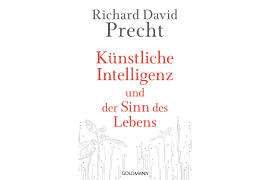
Richard David Precht: Künstliche Intelligenz und der Sinn des Lebens
(English: Artificial Intelligence and the Meaning of Life)
Goldmann, 256 pages, 20.00 €
Richard David Precht: Künstliche Intelligenz und der Sinn des Lebens
(English: Artificial Intelligence and the Meaning of Life)
Goldmann, 256 pages, 20.00 €
Germany's most widely read philosopher of the time brings together two central trends: the further development of artificial intelligence in the machine age; and the primacy of capitalism, and thus the destruction of the Earth. Then, in the middle of writing this book, COVID-19 came along, and its microscopic virus that managed to unhinge the world. These ingredients gave rise to a polished, clever piece of literature that deals with the current situation of humanity – with a species that claims the title of “homo sapiens”, yet has serious deficits in matters of sapience.
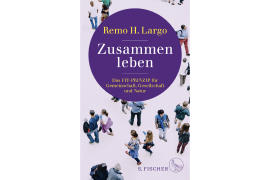
Remo H. Largo: Zusammen leben. Das Fit-Prinzip für Gemeinschaft, Gesellschaft und Natur.
(English: Living Together. The Fit Principle for Community, Society and Nature.)
Remo H. Largo: Zusammen leben. Das Fit-Prinzip für Gemeinschaft, Gesellschaft und Natur.
(English: Living Together. The Fit Principle for Community, Society and Nature.)
"We are at a turning point in the history of mankind, perhaps even of the planet," says Remo Largo. He sees the impending climate catastrophe as a great challenge, but also the isolation of people. We must do something to ensure that society and the Earth remain worth living in, or become worth living in again. This is what the renowned Swiss bestselling author advocates in his both highly engaging and factually written book. He lays out a plan for a life that not only does justice to humans and their needs, but also to animals and plants, the Earth and the climate.
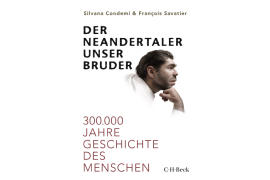
Silvana Condemi, François Savatier: Der Neandertaler, unser Bruder.
300.000 Jahre Geschichte des Menschen.
(English: Neanderthal, Our Brother. 300,000 Years of Human History.)
Translated into German by Anna und Wolf Heinrich
Leube. C.H. Beck, 240 pages, 18.00 €
Silvana Condemi, François Savatier: Der Neandertaler, unser Bruder.
300.000 Jahre Geschichte des Menschen.
(English: Neanderthal, Our Brother. 300,000 Years of Human History.)
Translated into German by Anna und Wolf Heinrich
Leube. C.H. Beck, 240 pages, 18.00 €
We’re long over the shock that humans are close genetic relatives of apes. Now, however, we must also accept the fact that the genome of homo sapiens contains traces of a little-loved other: the Neanderthal. But according to paleoanthropologist Silvana Condemi and science journalist François Savatier, the Neanderthal was not the limited, underdeveloped humanoid we have so often heard of. They explain what is now known about the Neanderthal in a book that was awarded the Grand Prix du Livre d'Archéologie in France.
Texte: Sabine Schmidt
Book recommendation
Minuscule marvels
Ludger Wess brings mostly invisible bacteria into focus and shows us their broad significance: be it for their role in how life develops, for the human body, the pharmaceutical industry or for waste disposal.
They are generally unrecognisable to the naked eye, but nonetheless there is so much to be said about these tiny beings, says business journalist Ludger Wess. For example: Bacteria can survive even under extreme conditions, in heat or cold, in acid or high pressure. Unlike viruses, they have their own metabolism. Their existence can be traced back to more than 3.5 billion years.
Still, a lot of research remains to be done, but nowadays we are able to be determine that bacteria can be both destructive and useful to humans. They can cause infectious diseases such as the plague, cholera and tuberculosis. But they can also help to fight disease. They are important for our immune system, intestines and skin. And there are also bacteria that support our industry and society, writes Wess. They can help dispose of waste and residues, save energy or produce medicines.

Ludger Wess: Winzig, zäh und zahlreich. Ein Bakterienatlas.
(English: Tiny, Tough and Abundant. An atlas of bacteria)
Illustrated by Falk Nordmann. Matthes & Seitz, 280 pages, 25.00 €
Highly specialised survivalists
Bacteria have survived every catastrophe throughout Earth's history, they are enduring and omnipresent: “One cubic centimetre of soil contains around a billion of them, a teaspoon of water from a pond contains a million and even a cubic metre of air contains around a thousand.” Nonetheless, most people know very little about these tiny specialists and their impressive capabilities.
Wess would like to see that change and offers an introduction into the life of bacteria: in a volume from the bibliophile, educated and yet layperson-accessible series “Natural Studies” (Naturkunden). 50 of the currently known 14,000 species of bacteria are portrayed. Falk Nordmann's illustrations display the astounding variety of these biochemistry experts.
Text: Sabine Schmidt
Talk with: Katharina Nocun and Pia Lamberty
Hidden puppet masters?
Social media nowadays offers conspiracy theories a chance to spread very rapidly. Political scientist Katharina Nocun and psychologist Pia Lamberty get to the bottom of “fake facts”.
Katharina Nocun. Foto: Miriam Juschkat
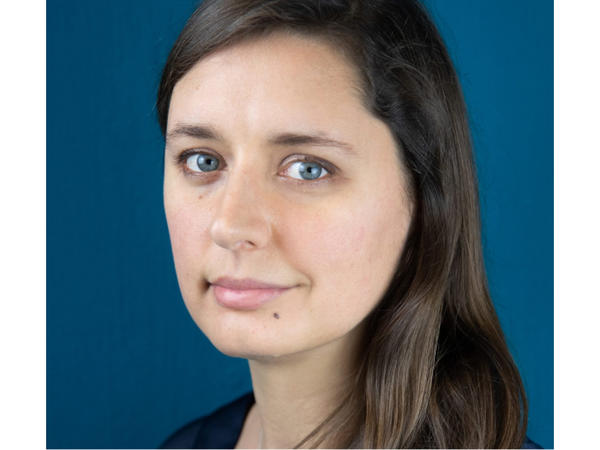
Pia Lamberty. Foto: Pia Lamberty
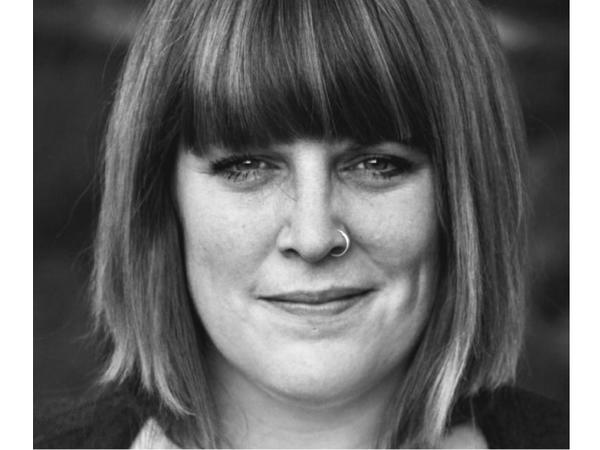
Why is the topic of “facts facts” so important that you have written a book about it?
Nocun: We want to make one thing clear: a lot of people make fun of those who believe in conspiracy theories and see them as harmless eccentrics – but actually, believing in conspiracy theories can have real destructive consequences.
What could those consequences be?
Nocun: For example, if you think the coronavirus is a fraud, you are not going to protect yourself or others. Sovereign Citizens refuse to pay taxes and threaten civil servants. Right-wing extremists use corresponding narratives to incite violence against immigrants and dissenters.
How is the belief in conspiracy theories, that is, clinging to explanations that cannot be factually proven, to be explained in terms of psychology?
Lamberty: When people have the feeling that they are no longer in control, they look for coping strategies. A conspiracy theory structures the world and thus helps to make it easier to comprehend. According to this logic, there are the evil conspirators and those who apparently see the truth. In addition, this belief in conspiracy enhances one's self-worth. You then are a defender of the “truth” and the others are merely “sheeple”.
Who is the most receptive?
Lamberty: When people have to deal with insecurity, they are more open to conspiracy theories. Those who, for example, have lost their job or fear doing so are more susceptible to the notion that secret puppet masters are controlling world events.

Katharina Nocum, Pia Lamberty: Fake Facts
Wie Verschwörungstheorien unser Denken bestimmen.
(English: Fake Facts - How Conspiracy Theories Determine our Thinking)
Quadriga, 352 pages, 19.90 €
Can conspiracy narratives be assigned to certain groups?
Lamberty: Certain studies have shown that men have a greater affinity. Belief in conspiracies is especially prevalent in those who identify as right-wing. But this phenomenon is found throughout society. One-third of all Germans believe, for example, that politicians and other leaders are merely marionettes being manipulated by sinister forces behind the scenes. Nearly 20 per cent are convinced that information on the negative effects of vaccinations is being intentionally suppressed. Just as many believe 9/11 was a conspiracy.
Interview: Sabine Schmidt
Focus on: current and controversial
Capitalism, climate change & the coronavirus
Without a doubt: Covid-19 is currently one of the biggest topics in non-fiction. But other major problems have not gone away, and they are still being addressed, such as climate change, how we deal with resources, and how a handful of people exploit entire nations.
“Unsere Welt neu denken” (The Great Mindshift) was the topic that Maja Göpel wanted to address just before Covid-19 started to spread. Since then, the world has become a different place – the problems, questions, demands that the dedicated economist was writing about in spring of 2020 have nonetheless remained: plastic in the oceans, massive population growth, and reckless capitalism.

Maja Göpel: Unsere Welt neu denken
Eine Einladung. (English: The Great Mindshift How a New Economic Paradigm and Sustainability Transformations Go Hand in Hand)
Ullstein, 208 pages, 17.99 €
Water is definitely a topic worth focusing on, says Maude Barlow: a resource that in the middle latitudes – at least for now – is clean and easily available from the tap. The Canadian activist is fighting to make access to this valuable resource a human right, and to ensure that we use it carefully. This is the aim of her new book: “Whose Water is it, Anyway?”

Maude Barlow: Das Wasser gehört uns allen! Wie wir den Schutz des Wassers in die öffentliche Hand nehmen können.
Translated into German by Wolfgang Müller.
(English: Whose Water is it, Anyway? Taking water protection into public hands)
Kunstmann, 160 pages, 16.00 €
Investigative journalist Oliver Bullough looks into corruption, tax evasion, and making money hand over fist – such as the grotesque collection of real estate and kitsch amassed by the ousted Ukrainian President Viktor Yanukovich. In “Money Land” Bullough explains his claim that “thieves and crooks rule the world” – and what sort of fatal consequences that can lead to. Not just for nations, but for individuals such as those who cannot afford cancer treatments in a bribe-based system.

Oliver Bullough: Land des Geldes
Warum Diebe und Betrüger die Welt beherrschen. Translated into German by Jürgen Neubauer. (English: Money Land Why thieves and crooks now rule the world and how to take it back)
Kunstmann, 350 pages, 25.00 €
Decidedly future-oriented
Added to these long-term issues is Covid-19. In the midst of the dynamic developments surrounding this new virus, Cordt Schnibben, together with other journalists, asks about everything that has gone wrong to date and what we can learn from it in “Corona: Geschichte eines angekündigten Sterbens” (Corona: Chronicle of an Announced Death).

Cordt Schnibben, David Schraven (Publisher): Corona
Geschichte eines angekündigten Sterbens. (English: Corona Chronicle of an Announced Death) dtv, 368 pages, 18.90 €
Clemens Fuest emphasises a special aspect in his analysis of the pandemic: “Wie wir unsere Wirtschaft retten” (How to Save Our Economy). The renowned economist addresses matters such as high government indebtedness and the financial situation in the EU – and looks for ways out of the coronavirus crisis.

Clemens Fuest: Wie wir unsere Wirtschaft retten
Der Weg aus der Corona-Krise. (English: How to Save Our Economy The Way Out of the Corona Crisis) Aufbau Verlag, 277 pages, 18.00 €
The USA is really deeply stuck in this crisis, at least according to opponents of the President: high case numbers, high mortality rates, and millions out of work. In her book, Mary L. Trump wants to do her part in toppling Donald Trump from the throne. “Too Much and Never Enough” offers intimate family details to reveal the true face of her uncle, shortly before the US presidential election. Her book has generated a great deal of attention worldwide.
Text: Sabine Schmidt

Mary L. Trump: Zu viel und nie genug
Wie meine Familie den gefährlichsten Mann der Welt erschuf. (English: Too Much and Never Enough How My Family Created the World's Most Dangerous Man)
Heyne, 288 pages, 22.00 €
Newsletter
Stay up to date about trends, offers and relevant news by subscribing to our newsletter.
